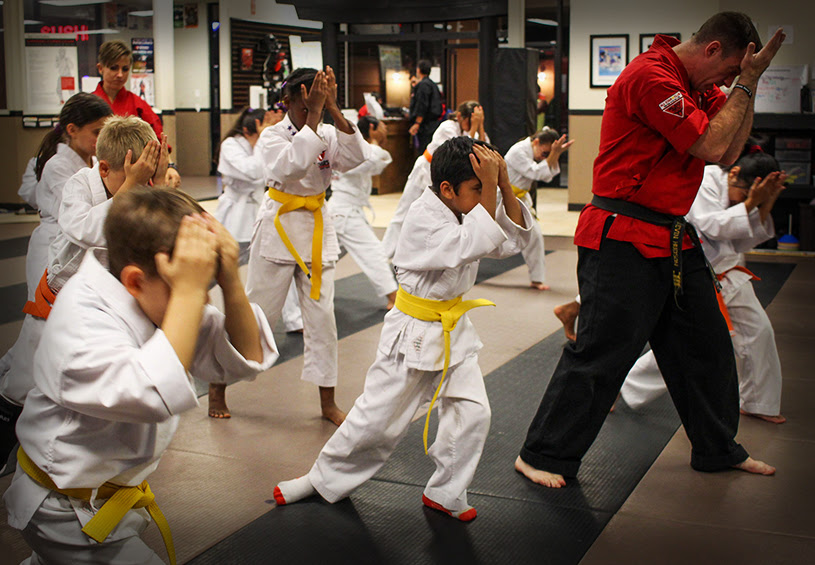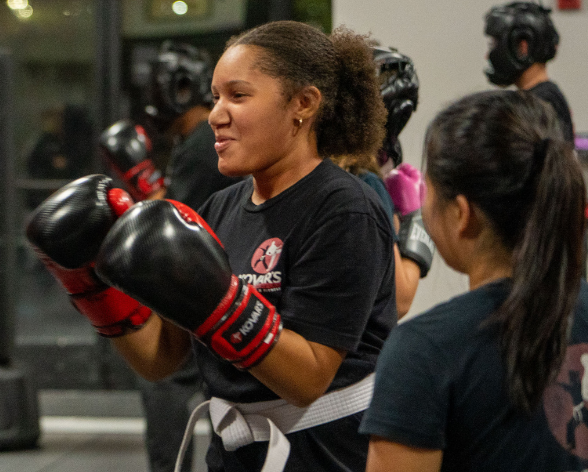Martial Arts vs Team Sports: Key Differences and Benefits
Discover the key differences and benefits of martial arts vs. team sports. Learn how each activity helps kids grow physically and mentally.

When deciding on an activity for your child, you may be weighing the options between martial arts and team sports. Both are excellent choices that offer unique benefits, but they differ in how they help kids grow and develop. Whether your child thrives in a group setting or prefers individual challenges, understanding these differences can help you make the best decision for them.
At Kovar's Satori Academy of Martial Arts in Fair Oaks, CA, we believe both paths can teach valuable life skills, but martial arts offers something uniquely impactful. Let’s break down the key differences and benefits of martial arts and team sports.
Individual Growth vs Team Dynamics
One of the biggest differences between martial arts and team sports is how they approach growth and development.
In team sports, like soccer or basketball, your child is part of a group working toward a common goal. Success depends on how well the team collaborates, and your child learns skills like teamwork, communication, and sharing responsibility. It’s a great way for kids to feel connected to others and develop a sense of camaraderie.
In martial arts, the focus is on individual growth. Your child works to improve their own skills, set personal goals, and overcome challenges at their own pace. While they may practice alongside others, their success isn’t tied to the performance of a team. This emphasis on individual progress teaches self-reliance and accountability, empowering your child to take charge of their own development.
Competition vs Personal Achievement
Team sports often revolve around competition. Your child learns to win and lose as part of a group, which can build resilience and sportsmanship. However, the competitive nature of team sports can sometimes lead to added pressure or comparisons with teammates and opponents.
Martial arts shifts the focus to personal achievement rather than competing against others. While there may be opportunities for competition in martial arts, the primary goal is self-improvement. Your child is encouraged to set and achieve their own milestones, like mastering a new technique or earning a belt promotion. This approach fosters intrinsic motivation, where the drive to succeed comes from within rather than external rewards.
Flexible Progress vs Season Schedules
Team sports often operate on a seasonal schedule, with practices and games occurring during specific times of the year. While this can create a structured routine, it also means your child may have limited opportunities to participate if they miss a season or can’t commit to the schedule.
Martial arts offers more flexibility. Classes run year-round, allowing your child to start or continue training at any time. Progress in martial arts is self-paced, so your child can develop skills at a rate that suits them, without the pressure of meeting seasonal deadlines. This flexibility makes martial arts a great option for families with busy schedules or kids who thrive with consistent opportunities for growth.
Physical Fitness and Skill Development
Both martial arts and team sports promote physical fitness, but they do so in different ways.
Team sports emphasize group coordination and athletic performance. Your child will develop skills specific to the sport, such as dribbling a basketball or passing a soccer ball, while also improving cardiovascular endurance and teamwork.
Martial arts provides a well-rounded physical workout that focuses on strength, flexibility, balance, and coordination. Your child will practice a variety of movements, from kicks and punches to stances and forms, building a foundation of physical fitness that benefits them in many areas of life. Martial arts also incorporates mental training, teaching your child focus and discipline alongside physical skills.
Social Interaction and Community
Team sports are ideal for kids who enjoy working closely with others. Practices, games, and tournaments create opportunities for social interaction, and your child will learn to work toward a common goal with their peers. For kids who thrive in group settings, team sports can be a great way to build friendships and develop social skills.
Martial arts also fosters a sense of community, but in a different way. While classes focus on individual progress, students train together and support one another. At Kovar's Satori Academy, we emphasize mutual respect and encouragement, creating an inclusive environment where kids of all personalities feel welcome. This balance of independence and camaraderie helps kids develop social confidence in a supportive setting.
Life Skills and Personal Growth
Both martial arts and team sports teach valuable life skills, but the emphasis differs.
Team sports help kids develop teamwork, leadership, and communication. These skills are essential for working with others and navigating group dynamics.
Martial arts focuses on discipline, resilience, and self-control. Your child will learn to set goals, overcome challenges, and stay committed to their practice. These skills build a strong foundation for personal growth and self-confidence, helping your child succeed in all areas of life.
Which Is Right for Your Child?
Choosing between martial arts and team sports ultimately depends on your child’s personality, interests, and needs. If they enjoy working with others and thrive in a group environment, team sports may be the way to go. If they prefer individual challenges, want to build self-discipline, or need a flexible activity, martial arts could be the perfect fit.
At our martial arts classes in Fair Oaks, CA, we believe martial arts offers unique benefits that go beyond physical fitness. It’s a journey of personal growth, teaching kids to build confidence, focus, and resilience. Whether your child chooses martial arts, team sports, or both, the key is finding an activity that helps them grow into the best version of themselves.



